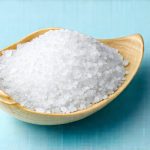Constipation is an incredibly common digestive issue, impacting people across all ages and demographics. While often viewed as a minor inconvenience, chronic constipation can significantly diminish quality of life, leading to discomfort, bloating, and even more serious complications if left unaddressed. Many factors contribute to constipation—hydration levels, physical activity, underlying medical conditions, and importantly, diet. Increasingly, restrictive diets aimed at rapid weight loss or adhering to specific health trends are being recognized as a significant catalyst for constipation episodes, creating a challenging cycle where dietary choices meant to improve health inadvertently hinder digestive function.
This isn’t simply about eliminating “bad” foods; it’s the degree of restriction and the often sudden nature of these changes that frequently trigger problems. When we drastically reduce food intake or eliminate entire food groups without adequate replacement strategies, our bodies—and particularly our digestive systems—react. The gut microbiome, a complex ecosystem vital to overall health, is especially sensitive to dietary shifts. A lack of fiber, insufficient fluid intake, and altered eating patterns can disrupt this delicate balance, leading to slower transit time in the colon and ultimately, constipation. Understanding how these diets impact digestion is crucial for making informed choices and preventing long-term digestive issues. Before embarking on any restrictive plan, consider evaluating your gut to understand its baseline health.
The Impact of Restrictive Diets on Digestive Function
Restrictive diets, encompassing everything from very low-calorie diets (VLCDs) to extreme elimination plans like those cutting out gluten, dairy, or entire food groups without medical necessity, often share common characteristics that directly contribute to constipation. These include significantly reduced fiber intake, decreased fluid consumption, and a disruption of the gut microbiome’s delicate balance. The body thrives on variety; when we limit ourselves to a narrow range of foods – even “healthy” ones – we deprive our gut of the diverse nutrients it needs to function optimally. This can lead to a cascade of digestive issues, beginning with sluggish bowel movements.
One major issue is the reduction in dietary fiber. Fiber isn’t digested by the body; instead, it adds bulk to stool and helps move waste through the digestive tract. Restrictive diets frequently eliminate fiber-rich foods like whole grains, fruits, vegetables, and legumes – all vital components of a healthy, regular bowel habit. This lack of bulk slows down intestinal motility, making stools harder to pass. Similarly, many restrictive approaches inadvertently reduce fluid intake. Often, individuals on very restricted calories or cutting out certain food groups simply don’t consume enough water, exacerbating the problem of hard stools and sluggish movement. It’s important to understand key takeaways from tracking digestive data to monitor how your body responds to dietary changes.
Furthermore, the gut microbiome – that vast community of bacteria residing in our intestines – relies on a diverse range of dietary fibers to flourish. When fiber intake is drastically reduced, beneficial bacteria can starve while less desirable microbes may thrive, leading to an imbalance known as dysbiosis. This disruption can impact digestion, nutrient absorption, and even immune function, all contributing to the development or worsening of constipation. It’s a vicious cycle: restrictive diets lead to gut dysbiosis which further impairs digestive efficiency and increases discomfort, potentially reinforcing restrictive behaviors. In some cases, signs from test results may indicate a need for a more comprehensive diet overhaul.
Fiber’s Role in Preventing Constipation
Fiber is arguably the most important dietary component when addressing constipation, and its impact extends far beyond simply ‘bulking up’ stool. There are two main types of fiber: soluble and insoluble, each with unique functions. Soluble fiber dissolves in water to form a gel-like substance, slowing digestion and helping regulate blood sugar levels. Good sources include oats, beans, apples, and citrus fruits. Insoluble fiber doesn’t dissolve in water but adds bulk to stool, speeding up the passage of waste through the digestive system. Examples include whole wheat bread, vegetables like broccoli, and bran cereal.
- Optimal Fiber Intake: Most adults should aim for 25-30 grams of fiber per day, a target often difficult to achieve on restrictive diets.
- Gradual Increase: Increasing fiber intake too quickly can actually worsen constipation, leading to bloating and gas. It’s crucial to increase fiber gradually over several weeks while simultaneously ensuring adequate hydration.
- Food First Approach: Prioritize obtaining fiber from whole foods rather than relying solely on supplements. While fiber supplements can be helpful in some cases, they lack the other beneficial nutrients found in food.
The key is finding a balance and incorporating a variety of fiber sources into your diet. Remember that simply adding fiber isn’t enough; adequate hydration is essential for fiber to work effectively. Without sufficient water, fiber can actually worsen constipation by creating harder stools. What you can learn from testing after making dietary changes can provide valuable insights.
Hydration & Digestive Health
Water plays a critical role in digestive health and preventing constipation. It helps soften stool, making it easier to pass through the intestines. Dehydration, which is common on restrictive diets due to reduced food volume and often limited fluid intake, directly contributes to harder stools and slower transit time. Many people underestimate their daily hydration needs, and this issue is amplified when following a restricted diet.
- Daily Fluid Requirements: The general recommendation is around eight glasses of water per day, but individual needs vary based on activity level, climate, and overall health.
- Beyond Water: While water should be the primary source of hydration, other fluids like herbal teas, clear broths, and even water-rich fruits and vegetables can contribute to your daily intake.
- Recognizing Dehydration: Symptoms of dehydration include thirst, dark urine, fatigue, headache, and constipation itself.
It’s important to sip water throughout the day rather than chugging large amounts at once. This allows for better absorption and utilization by the body. Pay attention to your body’s signals and drink when you feel thirsty. Moreover, be mindful of foods that can dehydrate you, such as caffeine and alcohol, and adjust your fluid intake accordingly.
Reintroducing Foods & Gut Healing
When transitioning off a restrictive diet, it’s essential to reintroduce foods gradually and thoughtfully. A sudden return to normal eating can overwhelm the digestive system and exacerbate constipation or other symptoms. This process requires patience and careful observation of how your body responds to different foods. The goal isn’t simply to add everything back at once but to identify potential trigger foods and rebuild gut health. Understanding signs from testing that show damage can help guide your recovery process.
- Start Slow: Begin by reintroducing small portions of previously restricted foods one at a time, waiting several days between each new addition to observe for any adverse reactions like bloating, gas, or changes in bowel habits.
- Focus on Whole Foods: Prioritize whole, unprocessed foods rich in fiber and nutrients. This helps nourish the gut microbiome and supports optimal digestive function.
- Probiotic & Prebiotic Support: Consider incorporating probiotic-rich foods like yogurt (if tolerated), kefir, or fermented vegetables into your diet to help restore a healthy balance of gut bacteria. Prebiotics – found in foods like garlic, onions, and bananas – provide food for these beneficial microbes.
If constipation persists despite dietary adjustments, it’s important to consult with a healthcare professional to rule out any underlying medical conditions and receive personalized guidance. Additionally, GI diagnostics can offer more detailed insights into digestive health. Remember that gut health is an ongoing process, and consistency with healthy eating habits and lifestyle choices is key to long-term digestive well-being. The aim should be sustainable, balanced nutrition—not quick fixes or overly restrictive measures that ultimately compromise your health.


















